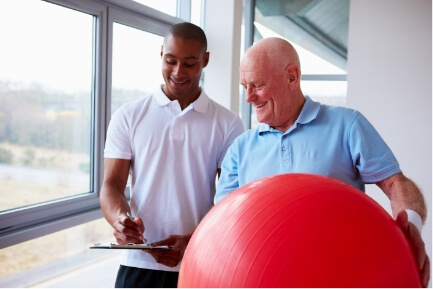The Basics of Arthritis | Pace Physical Therapy
The word “arthritis” literally means “inflammation of the joints.” The term arthritis is often used to refer to any condition that affects the joints, despite the fact that joint swelling is a symptom or indicator rather than a specific diagnosis. Joints, including your elbow or knee, are sites where two or more bones meet.
Arthritis comes in a variety of forms. Other organs, such as your eyes, heart, or skin, may be impacted in some arthritis-related conditions. Most people with arthritis can now live active and productive lives thanks to contemporary medications.
What are the causes of arthritis?
Arthritis can be caused by anything that damages a joint. Injuries, infections, overactive immune systems, and ordinary wear and tear are all prevalent causes. Researchers have discovered over 100 different types of arthritis, according to the National Institutes of Health. It can be difficult to tell one kind from another, but it’s an important step in getting the appropriate therapy.
Osteoarthritis is the most well-known form of the illness. This disorder develops when the cartilage that cushions the joints begins to deteriorate, which normally takes a long time. Osteoarthritis develops gradually and normally affects only one or a few joints at a time. The majority of persons with this disorder have pain and stiffness in their hips, knees, or hands.
Another prevalent kind is rheumatoid arthritis, which occurs when the immune system destroys joint tissue. It can affect people of any age, from infants to elders, unlike osteoarthritis. (The disorder is known as juvenile idiopathic arthritis or juvenile arthritis in children aged 16 and under.) It also affects numerous joints at once, unlike osteoarthritis.
What are the symptoms of arthritis?
Although arthritis symptoms vary, almost every arthritis sufferer will recognize some of them. To begin with, inflamed joints pain, especially while they’re moving. Arthritic joints are also typically stiff. The stiffness is most obvious first thing in the morning or after a lengthy period of inactivity. Simple tasks such as opening a jar or walking up the stairs might be quite challenging. The damaged joints may also be swollen, red, and warm to the touch depending on the type of arthritis.
What is the treatment for Arthritis?
Your doctor can assist you in managing your pain, preventing joint injury, and reducing inflammation.
They might suggest:
- Medicines
- Physical therapy
- Splints or other assistive devices
- Loss of weight
- Surgery is only used in exceptional circumstances.
The following are some of the medications that your doctor may recommend:
- Prescription or over-the-counter pain relievers
- Nonsteroidal anti-inflammatory drugs (NSAIDs)
- Biologics are drugs that are created using complicated processes employing genetically engineered microbes and are aimed to suppress inflammatory signals in the body.
- Steroids are used to reduce inflammation.
- DMARDs (disease-modifying anti-rheumatic medicines) are medications that slow or stop the progression of rheumatoid arthritis.
Take Control of Your Arthritis
Here are some things you can do to keep the situation under control.
- Make an effort to educate oneself. Take a self-management course to learn more about how to manage your arthritis on a daily basis.
- Get moving. Exercise can help you move more freely, reduce pain, and delay the onset of impairment.
- Keep an eye on your weight. Extra weight increases your risk of developing health problems.
- Don’t wait to get help. The sooner you get treatment, the better your chances of avoiding irreversible joint injury are.
Are You Looking for Arthritis Relief the You Can’t Seem to Shake?
Pace Physical Therapy in San Jose, California specializes in non-surgical arthritis pain relief and recovery therapies. We pride ourselves on offering the best possible physical therapy available and going above and beyond for our patients. Do you ever wake up feeling like you’re stiff or tight in your joints? Do they ache in the morning as you shift, becoming less painful as the day goes on? If so, this may be a symptom of early-stage arthritis. Arthritis is a common illness that many people suffer, but before seeking treatment, they tend to live with it for far too long. Pace Physical Therapy will help you find relief today. You don’t have to struggle with sore joints from arthritis. If you have arthritis, or you think you can have arthritic symptoms, contact Pace Physical Therapy today to request an appointment. Contact us today to schedule your appointment!


